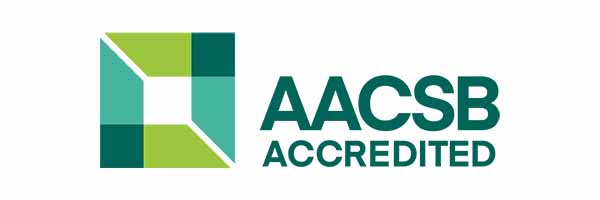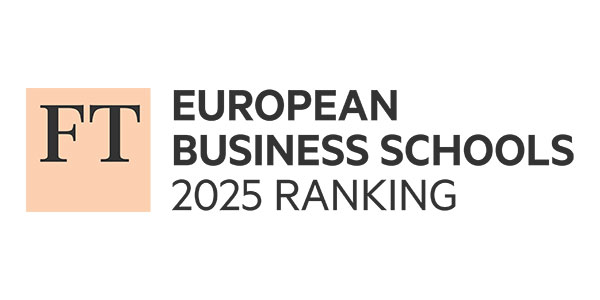MSc Sustainable Finance
ApplyKey facts
- Start date: September
- Accreditation: Triple-accredited business school (AACSB, EQUIS & AMBA)
- Study mode and duration: 12 months full-time
Affiliations: CFA Institute University Recognition Program; CFA Institute Certificate in ESG Investing Recognition Program
Study with us
- acquire a robust foundation in the principles and application of Environmental, Social & Governance (ESG) frameworks in finance and investing
- gain skills in problem solving and understanding the nuances of ESG with multiple case studies and guest lectures from industry leaders
- enhance your skills and knowledge regarding the role of technology, big data, and innovation for sustainable finance
- gain invaluable practical experience with the AmplifyME Boot Camp
- attain the Bloomberg Market Concepts certificate
- Our MSc Sustainable Finance recognises essential topics from the Certificate in ESG Investing from CFA Institute. This professional certificate offers both practical application and technical knowledge in the field of ESG investing
The Place of Useful Learning
UK University of the Year
Daily Mail University of the Year Awards 2026
Scottish University of the Year
The Sunday Times' Good University Guide 2026
Why this course?
Aligning finance with sustainability is a necessary condition for tackling the environmental and societal challenges we face.
The incorporation of ESG factors in almost every dimension of investment and financing strategies is becoming pivotal for the survival and sustainability of business and investment communities.
This MSc programme takes a holistic approach on sustainability and covers all the key challenges and opportunities that considering environmental and social issues in the investment decision can have.
The purpose of the MSc Sustainable Finance is to train finance professionals with a vision of social and environmental responsibility and a clear understanding of the challenges, opportunities, and applications of sustainable finance.
Meet the course leader
Meet course leader Professor Dimitris Andriosopoulos and find out what he has to say about this course.

Through the programme you'll:
The MSc Sustainable Finance programme will equip you with the analytical, financial, and strategic capabilities needed to address complex sustainability challenges.
Modules such as Applications of Sustainable Finance and Sustainable Finance & Technology will prepare you to tackle real-world issues and apply the latest tools of data analytics. This MSc programme takes a holistic approach on sustainability, covering the key challenges and opportunities that arise when environmental and social factors are integrated into investment decisions.
Our graduates are highly sought after for their expertise in financial modelling, data analytics, and ESG integration. With the evolving role of sustainability-related regulation and reporting, this programme perfectly positions you for the skills required by employers in sustainable finance, but also in traditional financial services and overall business world.
Graduates have progressed to roles in banking, accounting and consulting, and asset management, demonstrating the programme’s relevance and reputation.
This programme covers the latest sustainability challenges and disclosure requirements, helping you build a critical understanding of the field’s complexities grounded in current research evidence. Meanwhile, you'll develop the latest analytics tools and gain insights from industry leaders on emerging challenges and opportunities in sustainability and business.
This MSc fosters a culture of reflective practice and collaborative problem-solving. Through group projects, case studies, and engagement with external stakeholders, you'll develop strategic thinking and leadership skills.
The programme encourages bold and innovative approaches to sustainable finance, preparing you for long-term success in the workplace.
You'll have access to Strathclyde Inspire, a sector-leading university-wide entrepreneurship strategy that supports entrepreneurship and innovation. Strathclyde Inspire offers opportunities to develop an entrepreneurial mindset; this will help you to unlock your potential in sustainable finance, whether through start-ups, intrapreneurship, or policy innovation.
What you'll study
Semester 1
Semester 1 is designed to give you a solid foundation and understanding of finance and investments and introduce the key opportunities and challenges of environmental, societal, and governance factors.
Semester 2
Semester 2 delves deeper on sustainable finance covering issues such as:
- disclosure and materiality of sustainability issues and opportunities
- how technology, big data, and innovative solutions can be applied for sustainable finance and capital allocation decisions
- how the latest sustainability-related regulatory requirements and industry applications shape the financial landscape.
In addition, you will gain a comprehensive understanding of finance, investments, and risk management from an array of elective classes.
Research Projects
You will work on two research projects focusing on sustainable finance, supported by an academic supervisor. You can choose a topic from the broad range of issues covered on the programme. You'll be assessed on your ability to select and apply relevant theory and research methods. This work may be linked to an issue raised by, or a problem to be solved for, an employer.
Affiliations
CFA Institute
Our MSc degree has also been accepted into the CFA Institute University Recognition Program. This status is granted to institutions whose degree program(s) incorporate at least 70% of the CFA Program Candidate Body of Knowledge (CBOK), which provide students with a solid grounding in the CBOK and positions them well to sit for the CFA exams.
CQF
The Certificate in Quantitative Finance (CQF) is the largest professional qualification in quant finance and is recognized by financial companies worldwide. Strathclyde Business School is one of the few Universities recognised by the CQF Institute and our students can register as free members and have the opportunity to access the latest CQF Institute membership resources, including events, research, careers tools, workshops and thought leadership content.
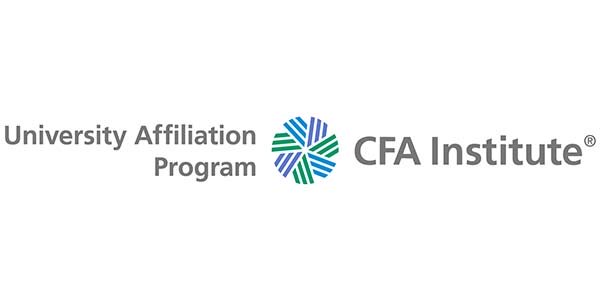
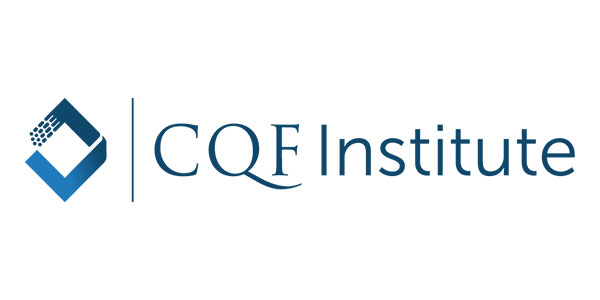
Strathclyde Business School
Strathclyde Business School was founded in 1948 and is a pioneering, internationally renowned academic organisation with a reputation for research excellence.
One of four faculties forming the University of Strathclyde, SBS is a triple-accredited business school (AACSB, EQUIS and AMBA) and was the first business school in Scotland to achieve this accolade in 2004.
The Business School is home to seven subject departments and a number of specialist centres, all of which collaborate to provide a dynamic, fully-rounded and varied programme of specialist and cross-disciplinary courses.
Strathclyde Inspire
At Strathclyde, we live and breathe entrepreneurship. The University of Strathclyde started life as a place of useful learning, an institution that wanted to make a difference through dong things innovatively, boldly and socially oriented; this founding mission has never been more relevant. Today, we continue to nurture generations of influencers, innovators and industry leaders, empowering our staff, students and alumni to embrace entrepreneurship, transforming their own lives and the lives of others.
Strathclyde Inspire supports and encourages entrepreneurship in all its forms, so whether you want to be more entrepreneurial in your approach to life, business and society, have an idea for a business, or are considering commercialising your research, we will support you at every stage of your journey.
Triple-accredited business school
Core classes
Quantitative Methods for Finance
Credits: 20
Teaching: 43 hours, which is split between lectures and workshops
Assessment: class test (30%) and final examination (70%)
This module aims to provide an introduction to statistical techniques that are commonly used in finance, a basic understanding of econometric analysis, and an appreciation of the general role of quantitative methods in finance. The module will focus on the application of statistical techniques to examine empirical issues in finance, such as corporate finance and stock price analysis.
Principles of Finance
Credits: 20
Teaching: 33 hours of lectures supplemented by 10 one-hour workshops
Assessment: class test (30%) and final examination (70%)
This module will provide an introduction to financial decision-making, and much of the relevant analysis will be developed from the standpoint of corporate finance. It'll explain how a company should decide on the investments to be undertaken to meet its objectives, generally assumed to be the maximisation of its value. It will be demonstrated that this will require a rate of return on its investments in excess of the return available in the capital market on equally risky financial investments. As a result, it will be necessary to develop an understanding of the capital market risk-return relationship. This will require an appreciation of the nature of risk and how this can be managed by the development of portfolios.
Even though the focus of the module will be on corporate finance, it'll also require an appreciation of how the risk-return tradeoff is determined in the capital market.
International Financial Markets & Banking
Credits: 20
Teaching: 43 hours, which is split between lectures and workshops
Assessment: class test (30%) and final examination (70%)
The aim of the module is to provide you with an understanding of the financial system and the roles and functions of financial markets and institutions. A particular emphasis is placed on understanding the roles of intermediaries such as banks and investment firms.
You'll develop an understanding of the various characteristics and roles of fixed income, equity, and foreign exchange markets. While some attention will be given to the UK financial markets, the global nature of financial markets will be widely discussed. This module aims to equip you with an awareness and understanding of financial markets and institutions in the context of the global economy. Particular emphasis will be placed on the role and contribution of the banking sector.
This module covers the reasons for, and nature of, of financial markets and institutions with a particular focus on banking, the global nature of these markets and their regulation.
Sustainable Finance
The main objective of this module is to provide students with the necessary foundation of theoretical and conceptual tools used in Sustainable Finance and the analysis of ESG Investing. Other learning objectives of the course include the review of diverse case studies within different industries to enable students to understand the subtle differences from the traditional Investing lens, and especially the challenges of quantifying ESG in the investment decision, since ESG is not a clear-cut and tangible concept that can be measured easily. An additional aim is for students to understand the importance of Sustainable finance and how it can be a force for shaping not only the markets but also society and the environment. By the end of the module, students will be able to better understand how markets behave within the new paradigm of sustainable finance and ESG investment.
Core classes
Sustainable Finance and Technology
This course uniquely encourages students to explore the nexus between sustainable finance and financial technology (FinTech). Students will be introduced to key concepts that define FinTech. The dynamic FinTech landscape will be navigated, outlining how a new ecosystem of financial services is evolving, with new innovative financial products and services being offered and new alternative markets being developed. Against the background of the global sustainability challenge and the critical need for mobilising sustainable finance, the role that FinTech can play as an enabler of this capital flow will be discussed.
Across areas such as crowdfunding and peer-to-business lending, cryptoassets and blockchain, and wealth management and roboadvisors, students will synthesise academic and industry evidence to evaluate the levels of investment currently being directed through FinTech enabled channels to fund sustainable companies and projects. Particular attention will be given to the area of Environmental, Social and Governance (ESG) investing and Socially Responsible Investing (SRI) and how technology can support this activity. The challenges of ESG measurement will be considered and financial data science applied to the problem of ESG scoring. Portfolio management demonstrations will be provided to students under emerging portfolio construction frameworks that seek to optimise across risk, return and ESG.
Sustainable Accounting: Theory & Practice
The main aim of this class is to apply theoretical and conceptual frameworks to evaluate the effectiveness of sustainable accounting. In turn, students will practice reporting on sustainability and problematise the role of accounting to achieve the sustainability outcomes. In addition, students will analyse the role of accounting in standardisation techniques and evaluatory frameworks such as the GRI framework, ISSB, UN SDGs, TCFD, ESG matrix, debates on single/double materiality and the role of accounting in integrated reporting and achieving triple bottom line. By the end of the module, students will be able to develop analytical/evaluatory skills to identify relationships between the society, market and the environment.
Applications of Sustainable Finance
This course will consider different policies, regulations and supervisory expectations related to sustainable finance are evolving in different jurisdictions. In particular, the course will focus on the role of (financial) regulators in promoting sustainable finance (eg. EU Taxonomy, bank stress-testing), the role of ESG rating agencies and how they apply across different financial products (not just bonds/loans, but also emerging areas). Industry engagement to highlight the applications of sustainable finance will involve, focusing on practical situations and key parties in the sustainable finance ecosystem - eg.:- Strategy deployed by specific impact / ESG funds- Establishment of specific sustainable finance frameworks and debt issuance under it- ESG due diligence undertaken by specific investor/bank- Second party opinion provider explaining their role in assessing sustainable finance frameworks- ESG rating agency explaining their methodology, using case studies and the latest academic and professional research.
Elective classes
Choose 3 from the following:
Textual Analytics for Accounting & Finance
Credits: 10
Assessment: final examination (50%) & individual assessment (50%)
This module aims to equip you with the skills and knowledge necessary to leverage unstructured textual data in a financial context. As the financial services sector increasingly makes use of data-driven insights, you will be taught methods through which textual information from sources such as corporate reports, news articles, and social media can be analysed.
You will gain hands-on experience with basic qualitative software such as NVivo, before covering traditional textual analysis methods (such as dictionary and machine learning methods) before more recent and advanced natural language processing (NLP) is introduced, including transformer-based models such as BERT and large language models (LLMs). Through these methods, you will be able to extract sentiment, detect trends, and identify key patterns in financial texts, evaluating the relative benefits and drawbacks of each approach (for example, more recent methods lack explainability but offer greater accuracy).
The module will place emphasis on developing both technical and analytical skills, encouraging you to critically evaluate the accuracy, relevance, and limitations of textual data analysis in decision-making processes. Additionally, the module will address ethical considerations and challenges related to bias, transparency, and data privacy in text analytics, specifically in relation to relevant UK guidelines and regulation.
By the end of the module, you will be able to apply text analysis techniques to real-world business scenarios, enhancing your ability to provide data-driven insights and solutions within various professional finance settings.
Portfolio Theory & Management
Taught by: Lijie Yu
Credits: 10
Teaching: 15 hours of lectures
Assessment: assignment (30%) and final examination (70%)
The module aims to examine the Markowitz (1952) approach to optimal portfolio selection. The module explores issues relating to optimal portfolio choice and issues in passive and active fund management through the lens of the nature of variance, covariance, risk and return. The module introduces practical applications and an extension of basic theory.
Empirical Methods in Finance
Credits: 10
Teaching: 15 hours, which is split between lectures and computer lab sessions
Assessment: final examination (100%)
This class aims to build on the knowledge, understanding, and skills acquired in the Quantitative Methods in Finance class and extends it further, especially in the context of time series and panel data analysis. It focuses on applications in finance of econometric techniques and is extended to incorporate panel data analysis methods with their application in finance.
Equity Analysis
Credits: 10
Teaching: 15 hours of lectures
Assessment: class test (30%) and group assignment (70%)
This module focuses on equity valuation. The aim is to equip students with the knowledge and tools required for analysing the financial performance of firms and measuring their value. Students will be skilled in reviewing financial statements, estimating and assessing financial ratios and relevant accounting and economic data, and use this data for making forecasts and performing equity valuations. In addition, the module will cover the theoretical background for each valuation method and its application with real-life examples and case studies. Also, the module will examine the advantages and disadvantages of the main valuation models. Finally, the ultimate goal is for students to be able to perform and deliver an equity analysis report for any publicly listed firm.
Fixed Income Analysis
Credits: 10
Teaching: 15 hours of lectures
Assessment: class test (30%) and final examination (70%)
While fixed income securities (bonds) have been traded for a far longer time than equities, it's only recently that the trading volume of these instruments has exceeded that of equities in many of the economies with highly developed capital markets. The bond markets for the last 25 years or so have been characterised by rapid innovation and the range of bonds now being traded is quite diverse. Any graduate of an MSc programme in Finance is expected to be familiar with the nature of the valuation of bonds.
This module will put the MSc courses at Strathclyde in a position to provide students with the opportunity to analyse bonds and the markets in which they are traded in more depth than is possible at the moment.
Derivatives
This class will provide you with a strong grounding in derivatives that may be used to manage the financial risks faced by individuals, financial institutions and business corporations.
Find out more in the course outline for Derivatives .
Core classes
Empirical Research Project 1
All members of the class will be supplied with data relating to some issue in finance or accounting, and a preliminary list of hypothesis or questions to be addressed. You will be expected to expand the range of hypotheses to be considered and ways in which the hypothesis can be tested. Whilst all members of the class will consider the same issue the data sets will differ from one person to another.
By providing the data, and a broadly defined research agenda, the research project allows considerably more time to be spent on the analysis of the data and interpretation of results than is feasible in the context of a more conventional dissertation. While the challenge of identifying a research topic and the development of an appropriate data set are to a large extent eliminated it does allow the analytical work to be developed in more depth. The introductory class will review briefly the analysis and techniques that will be relevant for the research work to be undertaken.
Empirical Research Project 2
The educational aim is for students to be able to apply all the skills and knowledge acquired during their studies, leading to a comprehensive ESG analysis and evaluation of a potential investment proposition. Due to the ambiguity and inherently challenging nature of defining and measuring sustainability, the project will have a two prone approach. First, students will need to assess a listed company of their choosing (but approved by the supervisor) and assess its Sustainability performance based on established metrics as covered in the relevant modules in terms 1 and 2. Students will need to provide a quantitative analysis and discussion based on this analysis with regards to the past and current ESG performance. Ideally, students will need to cover the standard ESG metrics, provide ESG metrics from multiple providers and comment as to whey there is a deviation if any, and also look into alternative sources of data, e.g. outside Asset4 and Blomberg, that can relate to ESG issues and provide an opinion as to where the company stands as an investable proposition and with regards to its peers.
The second part relates to a qualitative aspect and investigative research. For instance, students will need to demonstrate their understanding of material ESG issues and identify key opportunities and challenges that are not obvious from secondary data source providers. Overall, this second part of the analysis will resemble an in-depth research akin to an investigative report.
AmplifyME Boot Camp
You can gain invaluable practical experience of the factors that drive today’s financial markets as part of your Master course. Amplify, a global financial trading and training company, in collaboration with Strathclyde Business School, delivers a week-long Boot Camp. This provides you with the opportunity to experience a real-life trading simulation, covering multiple roles in the process.
Amplify is a leading provider of training programmes to the financial industry, and they offer our students the same analyst level practical training they deliver to their clients. Amplify’s clients include Bank of China, Goldman Sachs, HSBC and Bank of America.
Note: the provider of this boot camp may be subject to change.
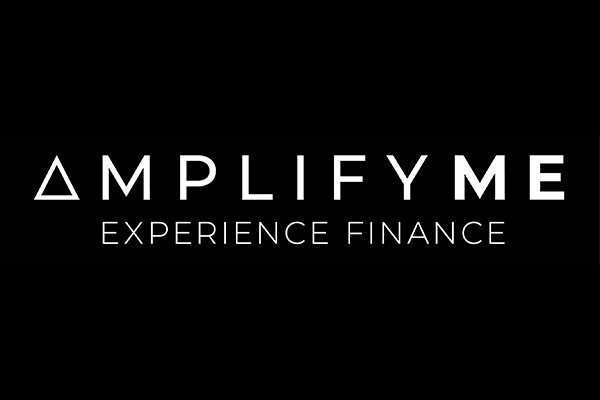
Learning & teaching
Core classes will be taught during semesters 1 and 2 with optional classes being offered in semester 2. Classes will be taught through a combination of lectures and workshops.
Research projects are undertaken during the summer months.
During your studies, you'll interact with the Bloomberg Trading Simulation Laboratory in the Business School and with Amplify Bootcamp.
Assessment
Class assessments will take the form of a class test and/or assignment for most classes. Each class will be examined at the end of the semester they are offered.
Entry requirements
| Degree | Minimum second-class Honours degree, or overseas equivalent - see our international student pages for further information - in accounting, economics, business studies or a subject area with a strong quantitative component. The programme requires no prior knowledge of finance. |
|---|
International students
We've a thriving international community with students coming here to study from over 140 countries across the world. Find out all you need to know about studying in Glasgow at Strathclyde and hear from students about their experiences.

Fees & funding
All fees quoted are for full-time courses and per academic year unless stated otherwise.
Fees may be subject to updates to maintain accuracy. Tuition fees will be notified in your offer letter.
All fees are in £ sterling, unless otherwise stated, and may be subject to revision.
Annual revision of fees
Students on programmes of study of more than one year (or studying standalone modules) should be aware that the majority of fees will increase annually.
The University will take a range of factors into account, including, but not limited to, UK inflation, changes in delivery costs and changes in Scottish and/or UK Government funding. Changes in fees will be published on the University website in October each year for the following year of study and any annual increase will be capped at a maximum of 10% per year. This cap will apply to fees from 2026/27 onwards, which will not increase by more than 10% from the previous year for continuing students.
| Scotland | £16,050 |
|---|---|
| England, Wales & Northern Ireland | £16,050 All home fee status candidates who are given an offer of study on this programme, will be automatically offered our SBS Masters scholarship for Home/UK students. |
| Republic of Ireland |
If you are an Irish citizen and have been ordinary resident in the Republic of Ireland for the three years prior to the relevant date, and will be coming to Scotland for Educational purposes only, you will meet the criteria of England, Wales & Northern Ireland fee status. For more information and advice on tuition fee status, you can visit the UKCISA - International student advice and guidance - Scotland: fee status webpage. Find out more about the University of Strathclyde's fee assessments process. |
| International | £32,800 All international candidates who are given an offer of study on this programme, will be automatically offered our SBS International Masters scholarship, which is £8,000 for this programme. A separate application is required for our higher value Dean’s Excellence Award. |
| Additional costs | Course materialsTextbooks do vary in price from around £40 to £100. The majority are provided free in the library or via the Virtual Learning Environment platform. For budgeting purposes, we recommend allowing £200 per academic year for books. International studentsInternational students may have associated visa and immigration costs. Please see student visa guidance for more information. Other costs
|
Pre-Masters preparation course
The Pre-Masters Programme is a preparation course held at the University of Strathclyde International Study Centre, for international students (non-UK/Ireland) who do not meet the academic entry requirements for a Masters degree at University of Strathclyde.
Upon successful completion, you'll be able to progress to this degree course at the University of Strathclyde.
How can I fund my course?
Scottish postgraduate students
Scottish postgraduate students may be able to apply for support from the Student Awards Agency Scotland (SAAS). The support is in the form of a tuition fee loan and for eligible students, a living cost loan. Find out more about the support and how to apply.
Don’t forget to check our scholarship search for more help with fees and funding.
Students coming from England
Students ordinarily resident in England may be to apply for postgraduate support from Student Finance England. The support is a loan of up to £10,280 which can be used for both tuition fees and living costs. Find out more about the support and how to apply.
Don’t forget to check our scholarship search for more help with fees and funding.
Students coming from Wales
Students ordinarily resident in Wales may be to apply for postgraduate support from Student Finance Wales. The support is a loan of up to £10,280 which can be used for both tuition fees and living costs. Find out more about the support and how to apply.
Don’t forget to check our scholarship search for more help with fees and funding.
Students coming from Northern Ireland
Postgraduate students who are ordinarily resident in Northern Ireland may be able to apply for support from Student Finance Northern Ireland. The support is a tuition fee loan of up to £5,500. Find out more about the support and how to apply.
Don’t forget to check our scholarship search for more help with fees and funding.
International students
We've a large range of scholarships available to help you fund your studies. Check our scholarship search for more help with fees and funding.
Careers
As a graduate of this course, you will be well suited to find employment in any job where a good knowledge of sustainability and finance is required, such as the financial services industry, consultancy firms, governmental and non-governmental organisations.
Currently there is extensive demand for sustainable finance talent and expertise from industry as denoted in the international and national press.
Apply
Start date: Sep 2026
Sustainable Finance
Contact us
SBS Postgraduate Admissions
Telephone: +44 (0)141 553 6105 / +44 (0)141 553 6116
Email: sbs.admissions@strath.ac.uk
Strathclyde Business School, University of Strathclyde
199 Cathedral Street
Glasgow
G4 0QU


